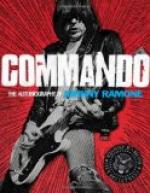Late at night I arrived at Rustenburg, only to find that the lagers had already taken flight. The enemy were expected at any moment. But the ambulance was there still, and all night long I led it in the direction the General had told me the lagers would take.
Late the following morning I arrived at De Wet’s lager, which had moved a few hours further on to Sterkstroom. The commando left there that afternoon, and went along the Magalies Mountains to Commandonek. That day and that night we had a first experience of the long tiresome marches that enabled De Wet to mislead the enemy.
That night President Steyn made a most favourable impression on us with his talk. He did not try to encourage us with hopes of intervention, but merely pointed out that the war might last a long time still, and that we would have to enter the Colony.
At Commandonek we rested a few hours while De Wet himself went to reconnoitre. He sent a message to the English officer in charge of the pass that he must surrender. The officer replied that he did not quite understand who must surrender—he or De Wet. I think this was merely a dodge on De Wet’s part to find out by the signature of the reply who was in charge of the army at the pass, and so to make a guess at the numbers of the enemy.
He decided not to attack the pass, and before daybreak next day we were on the move again. Some time afterwards at Warmbad I heard that an English General had related this dodge of De Wet’s, but he thought De Wet had threatened him with a very small force, as his commando must still have been at Olifantsnek. It is an example of the way we misled the enemy by our mobility.
VII
WITH PRESIDENT STEYN TO PRESIDENT KRUGER
Near Krokodil River, on Carlyle’s Farm, President Steyn and his attendants separated from De Wet’s commando, and went in the direction of Zoutpan to Machadodorp. We were about seventy-five men in all. The little commando consisted of carts, a few trolleys, and horsemen on strong, well-conditioned horses. The Free Staters nearly all had one or two spare horses. Our own commando still always consisted of twelve or thirteen men, and the small ambulance waggon which we used for provisions. The French doctor had remained behind with De la Rey. We moved very fast. At Zoutpan—a sunken kopje like the mouth of a crater, with a pan at the bottom, from which the salt is got—I met some old acquaintances, who pretended to have come there for salt. During our talk my suspicions were roused by their curiosity, and by their knowledge of President Steyn’s arrival. I also doubted their tale that their trolley stood behind a kopje, and not at Zoutpan, and I warned the Commandant against them. He became very anxious, and made us move on as rapidly as possible, for once we had crossed the Pienaars River all danger from khaki would be past. It was a good thing that the Commandant made us travel so fast, for we had only just outspanned at Pienaars River the following morning when the khakies’ bomb-Maxim began firing at the outposts of General Grobler’s Waterberg commando, which was stationed there. We had only just time to inspan and ride off to the Boschveld, towards the Olifants River, where we would be safe, while General Grobler disappeared in the direction of Warmbad.




